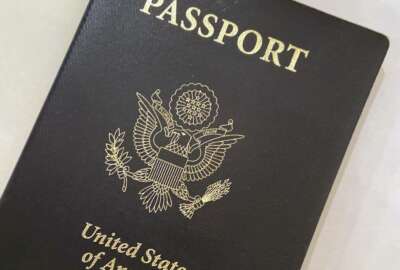IG links State Dept. staffing issues to delays in decade-long IT modernization project
The project, launched in 2011, is meant to consolidate the department’s visa and passport application services, visa adjudication and issuance services, as well...
The State Department’s watchdog is linking years of IT staffing issues to repeated delays in a decade-long modernization of the agency’s consular systems.
More than 10 years into plans to modernize and consolidate 90 legacy systems under its ConsularOne initiative, the department’s Office of Consular Systems and Technology (CST) has only conducted one pilot of a single system component and missed several deployment dates for other systems, according to a recent inspector general report.
“Based on conversations with office staff and review of performance documents, OIG concluded that CST leadership did not hold either U.S. government staff or contractors accountable for the missed ConsularOne deployment dates,” auditors wrote in the report.
The IG office estimates the cost of ConsularOne ranges from $200-to-600 million, but said a lack of clarity from the agency over contracts linked to the project means the watchdog was “unable to determine the total cost of the ConsularOne modernization program with any precision.”
The project, launched in 2011, is meant to consolidate the department’s visa and passport application services, visa adjudication and issuance services, as well as other consular functions into a single common technology framework.
Aside from creating an opportunity to retire legacy systems, the ConsularOne effort would allow U.S. citizens to apply for passport renewal online, allow data scientists at the department to enable predictive analytics and provide support to a Consular Task Force that would have real-time data to respond to moments of crisis.
Among the project’s biggest hurdles, the IG report documents challenge with leadership, management of resources, communication, project management and information security management. Auditors also cite long-term workforce challenges as a cause for delays.
The report finds the vacancy rate in the IT office over the past seven years was at least 28%, and CST’s director told the IG’s office that staff vacancies “are definitely part of the delay.”
“The vacancies will continue to hinder the ConsularOne modernization program until CST’s positions are filled. OIG recognizes that filling the vacant positions in CST will take time, but recent efforts appear to be yielding favorable results,” the report states.
Between December 2014 and April 2021, the IG found the vacancy rate of civil service positions in CST ranged between 28% and 39%. The IG found the vacancy rate peaked during the department’s hiring freeze from January 2017 to May 2018.
CST employees cited several potential causes for the significant departure of IT staff, including federal salaries not being competitive with private sector IT jobs, higher graded positions available in other bureaus and problematic management styles.
More than 40% of CST employees who responded to the 2020 Federal Employee Viewpoint Survey said their office didn’t take appropriate steps to deal with poor performers.
Workplace challenges also filtered up to the team’s higher ranks. More than 70% of CST’s mid-level managers told the IG’s office in a survey that communication and collaboration among staff “was inadequate to support the office’s objectives.”
More than half of mid-level managers who responded to the IG survey said they spent more than 40% or more of their time in group meetings, but 80% of respondents said these meetings “were ineffective or only somewhat effective, resulting in the need for additional meetings to reach decisions.”
Managers told the IG’s office that they did not have enough time to carry out responsibilities, felt reluctant to “call out” others and didn’t have enough staff to oversee contractors.
Those problems persisted in IT-adjacent offices as well. The report found that only three of the department’s Service Strategy and Portfolio Management Division’s 13 positions were filled at the time of its review.
“A high vacancy rate in this division is serious, considering its contract management and oversight responsibilities for all of CST,” the report states.
CST in December 2020 brought on an experienced human resources specialist who worked with the bureau’s executive office to implement innovative hiring procedures.
The IG report says those procedures are producing “promising results,” but said many prospective employees lack the necessary security clearances, which creates a significant hurdle before they can begin work.
Assistant Secretary for the Bureau of Consular Affairs, Rena Bitter, largely agreed with the IG’s recommendations but said the bureau was already following management best practices for the ConsularOne modernization project.
“CA concurs with the OIG recommendation that staff be held accountable for performance and deliverables for ConsularOne but asserts that the Office of Consular Systems and Technology does employ the bureau’s leadership and management tenets,” Bitter wrote.
The department began systems development for online passport renewal, the first component of the project to get off the ground, in April 2014. The department originally expected online passport renewal to launch in March 2016, but agency officials told the IG office that they now expect that capability to launch sometime this month — nearly six years past the original timeline.
The IG office previously reported that missed deadlines and performance goals under the ConsularOne program led to the agency requesting an additional $150 million in fiscal 2015 and 2016 to maintain legacy systems for longer than expected.
The IG issued a report in September that found the agency would have been able to pivot to telework and avoid backlogs of casework that peaked in fall 2020 and this summer. An inability to get these online passport renewals systems active, the IG wrote in its latest report, “could potentially leave the bureau unable to perform critical passport operations.”
Auditors found that lack of clarity also created confusion around the contracts supporting the IT modernization project. CST leadership in May 2021 gave auditors a list of 45 contracts supporting the ConsularOne modernization program, but a month later gave the IG office a “final list” of just 11 contracts, and said the others supported other IT modernization projects.
“OIG found that CST leadership was unable to provide a clear, uniform definition of the ConsularOne program, what components it included, and which contracts supported the program, creating confusion for stakeholders. The lack of clarity on what constitutes the ConsularOne modernization program hindered CST management’s oversight of the modernization effort and the ability to hold staff accountable for their performance,” the report states.
The report notes that during the review, agency officials at times interchangeably referred to both the ConsularOne and Consular Systems Modernization (CSM), a term used by the office for its other modernization projects, but on other occasions delineated each project as separate initiatives.
“When all parties involved have a different understanding of what constitutes the ConsularOne modernization program, CST management cannot adequately provide oversight of the modernization effort and hold staff accountable for their performance,” the report states.
The IG office found that since the ConsularOne modernization program began, CST only conducted a “very limited pilot” of just one system component and missed several deployment dates for other systems.
The agency in March 2019 piloted a platform that would give U.S. citizens living abroad the ability to complete an online application to report the birth of their children to the State Department for citizenship purposes. The agency launched the pilot at six consular locations, but missed its August 2021 deadline for a second version of the pilot at those same locations.
Copyright © 2025 Federal News Network. All rights reserved. This website is not intended for users located within the European Economic Area.
Jory Heckman is a reporter at Federal News Network covering U.S. Postal Service, IRS, big data and technology issues.
Follow @jheckmanWFED





